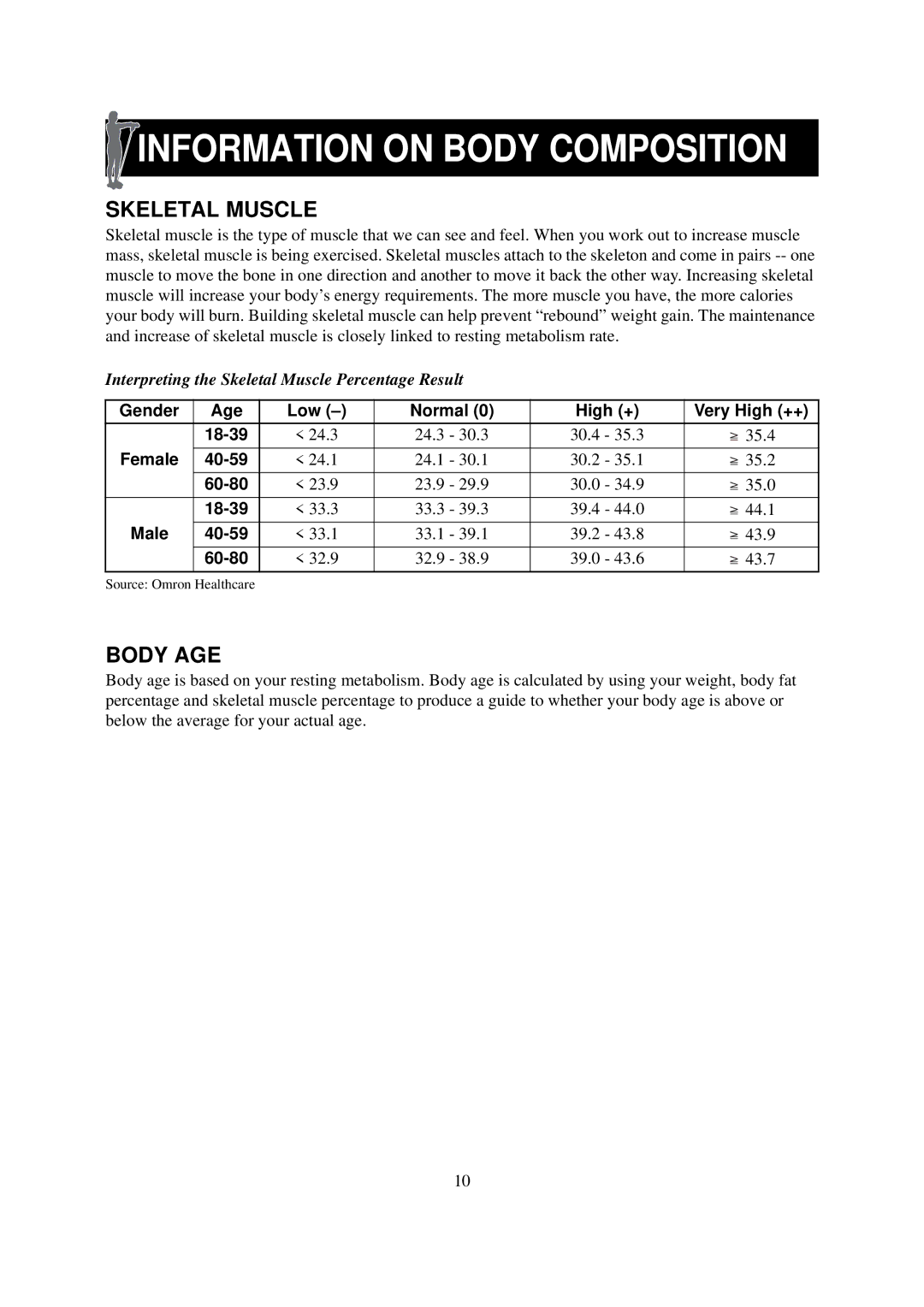 INFORMATION ON BODY COMPOSITION
INFORMATION ON BODY COMPOSITION
SKELETAL MUSCLE
Skeletal muscle is the type of muscle that we can see and feel. When you work out to increase muscle mass, skeletal muscle is being exercised. Skeletal muscles attach to the skeleton and come in pairs
Interpreting the Skeletal Muscle Percentage Result
Gender | Age | Low | Normal (0) | High (+) | Very High (++) |
| < 24.3 | 24.3 - 30.3 | 30.4 - 35.3 | _ | |
| > 35.4 | ||||
Female | < 24.1 | 24.1 - 30.1 | 30.2 - 35.1 | _ | |
> 35.2 | |||||
| < 23.9 | 23.9 - 29.9 | 30.0 - 34.9 | _ | |
| > 35.0 | ||||
| < 33.3 | 33.3 - 39.3 | 39.4 - 44.0 | _ | |
| > 44.1 | ||||
Male | < 33.1 | 33.1 - 39.1 | 39.2 - 43.8 | _ | |
> 43.9 | |||||
| < 32.9 | 32.9 - 38.9 | 39.0 - 43.6 | _ | |
| > 43.7 |
Source: Omron Healthcare
BODY AGE
Body age is based on your resting metabolism. Body age is calculated by using your weight, body fat percentage and skeletal muscle percentage to produce a guide to whether your body age is above or below the average for your actual age.
10
